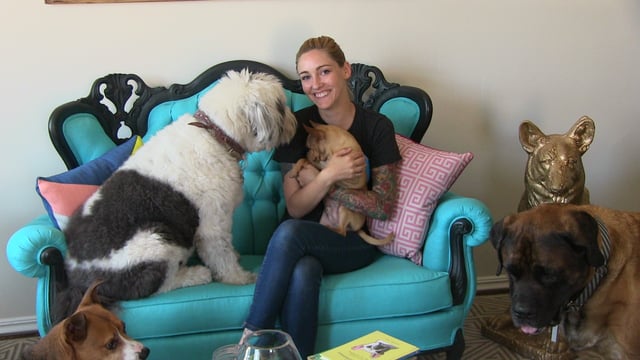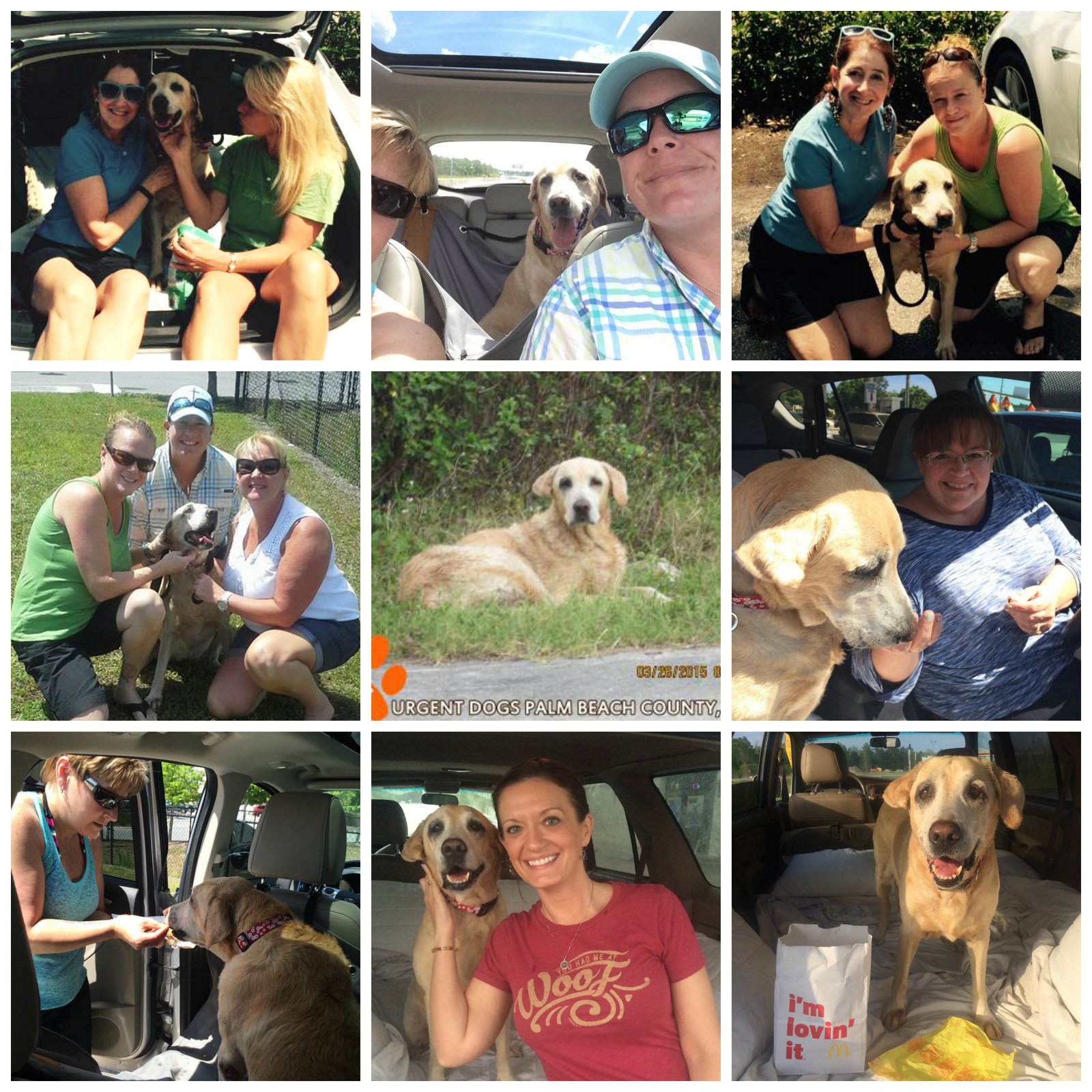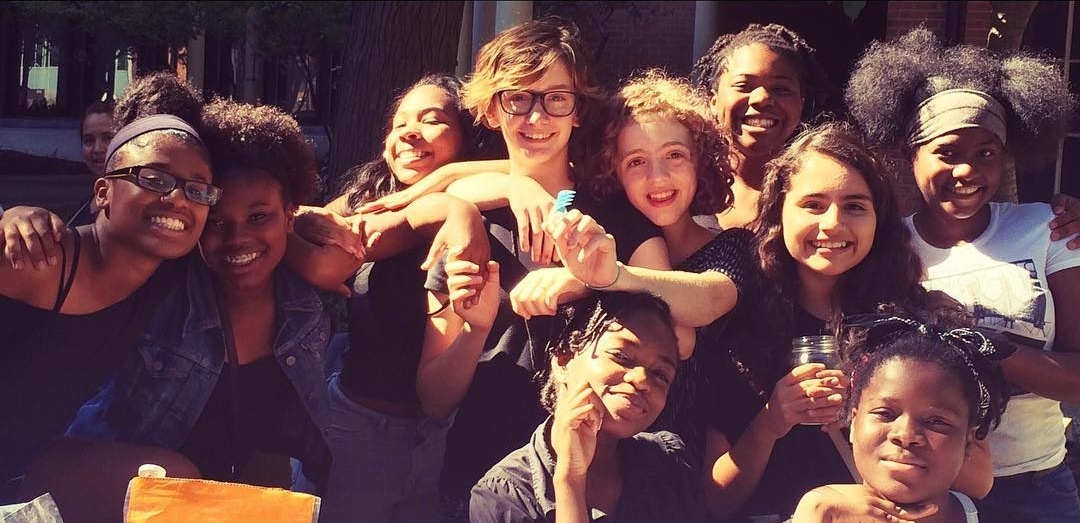Featured Idealist Spotlight: Heather Owen
According to the ASPCA, over 7.5 million dogs and cats enter into animal shelters each year. Of those, 2.7 million are euthanized due to lack of space and inadequate funding. I recently had the opportunity to chat with Chicago-based idealist Heather Owen, attorney-at-law turned top-dog pet-rescuer, about One Tail At a Time, a nonprofit aiming to lower kill-rates at shelters across the city and educate people on the benefits of the "adopt-not-shop" mentality. Heather gave me a peak behind the curtain of OTAT to see where they've come from, what they're doing now, and where they're headed next.
Let’s get down to it! Who are you?
I'm Heather Owen. I’m 34, and from the suburbs of Chicago. I grew up in the Northwest ‘burbs and now live in Logan Square.
Describe the work that you do. How did you get started?
Definitely! I co-founded One Tail At a Time in 2008 as a reaction to pet overpopulation problems and dogs dying in shelters. We are a rescue group which means when shelters in Chicago don’t have any more room for animals, they call us. When we started, there were only five of us, so we started really small, we just wanted to do some adoptions for shelter dogs in danger of euthanasia, or find foster families for dogs until they could find permanent homes. So we’ve been doing that since 2008 and we’ve grown a lot. Now we have our adoption program that does 420 adoptions a year and we have vaccine clinics in low income areas.
Wow. Tell me more about the vaccine clinics.
We call it Community Pet Day and we do it a minimum of twice a year. We pick a neighborhood that is low-income or has what we call an “animal resource desert,” which just means a lack of resources for pets. They don’t have veterinary clinics, pet stores, or trainers, so we bring the resources to them. It’s a whole day event where we provide vaccines, microchips, training, and spaying and neutering. Local veterinarians donate their time. We fundraise for things like pet food, leashes, collars, and microchipping. We do a lot of online fundraising. Actually, we just got done with our annual gala last weekend.
Have animals always been a passion of yours? How did this begin for you?
I’ve always loved dogs. I’m a huge dog person. When I was in law school, I bought a dog from a breeder thinking that it would be a good experience. I was twenty and didn’t know better. My dog had a lot of problems and the breeder ended up, for lack of a better word, sucking. He was not helpful at all. From there, I dove into rescue. Once I realized the gravity of the problems animals in shelters face, I felt like I had no other choice but to help.

What are the top challenges or difficulties you face in your field and what kind of solutions have you created?
There are a couple of problems: the first being a lack of funds. No one is giving us free money and it costs us more money to care for a dog than we get back in adoption fees. So this is not a profitable endeavor. If we had unlimited funds, we would be doing a lot more.
Struggle number two is that Chicago Animal Care and Control is super underfunded and understaffed. The result of this is that nonprofit groups are picking up the slack of a government body that is not showing the proper care to animals. We are having to hustle all the time to pick up after that mess.
Struggle number three is seeing people who are choosing to buy from a pet store or breeder. This choice stems from a lack of education. We must work really hard to show people that shelter dogs are just like any other dogs. It’s a constant struggle. We do a lot of puppy mill rescues, so we try to educate people in that regard. We try to keep our message really positive in order to show people that shelter dogs aren’t broken or less than. They are awesome!
What motivates you?
My dog. He was scheduled to be euthanized. I was meant to transfer him to a foster home, but I fell in love with him and ended up adopting him. If I hadn’t, he would have died in a shelter. That’s sad, but more than that – it’s unacceptable. The reason I do what I do is to help save other’s best friends from dying in a shelter. In this way, One Tail at a Time has helped so many people and dogs.
If you had one, what would the title of your biography be?
[Laughs] Let me think for a minute. I think “Workin’ Dog” — I’ve always thought about what kind of dog I would be and I’ve decided I’d be some type of Border Collie because I need a job all the time. I need to feel useful.
When you envision the future of One Tail at a Time, what do you see?
There is this concept in animal welfare called “no kill.” Simple, it means that you don’t euthanize adoptable, treatable animals. Any animal who can be helped will be helped and given a home. That’s our goal in Chicago. We are going to do everything we can to expand, create new programs, and find new partners to make this a reality. We are getting there slowly but surely.
What’s the best piece of professional advice anyone has given you?
Delegate!
[Laughs] I like that. I’m the intern so I get delegated to.
We’re grateful for interns! I tell everyone — if you’re starting a nonprofit, delegate. You can’t do it all, so that’s one thing. But you also are going to meet amazing people who can help your organization grow and be successful. You’ll want them doing the things you can’t do.
What are you passionate about?
I am passionate about community. I used to be a closed-off person living in my own world. But once you step out of that and see what everyone else outside of you is doing, it’s pretty compelling. Other amazing community organizations are out there working to find solutions for animal welfare, the homeless, better education for kids etc. These are community problems and need to be sourced and addressed as a community. To me, the most important thing is figuring out how to get people to come together.
What does being an "idealist" mean to you?
It means wanting to work for the greater good. So go do something. Not every idea is a winner, but actions are cool and they are what get things done. Go get involved. If you want to start something, just do it. Maybe it will be awesome. Maybe it will impact a lot of people. You’ll never know if you don’t try.
Share this
You May Also Like
These Related Stories

Why The Power of Peer-to-Peer Goes Beyond Fundraising

Featured Idealist Spotlight: {she crew}



No Comments Yet
Let us know what you think